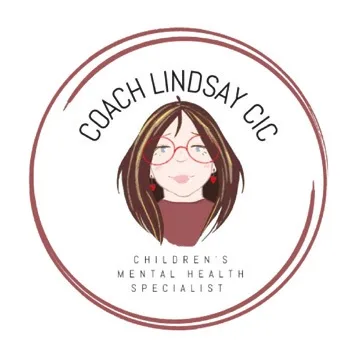
Share the Love: How To Help Your Child Cultivate Self-Compassion
by Coach Lindsay
Learning self-compassion
Helping your child cultivate self-compassion can be a beautiful journey. As a parent, you have the unique ability to guide your child with warmth, love, and understanding. Here are some gentle ways to encourage self-compassion in your little one.
By guiding your child with a loving heart and gentle words, you can help them develop a strong foundation of self-compassion. Your warmth, understanding, and encouragement will teach them to be kind to themselves and others. This journey is a precious opportunity to bond and grow together, creating a loving and compassionate home where your child feels safe and valued.
Mindfulness, NLP, Meditation, and EFT are some of the modalities I use in my sessions with children and young people. I want to dive a bit deeper into each of them to understand how powerful these are and how they can cultivate self-compassion.

Mindfulness:
Mindfulness involves being present in the moment without judgment. It can be a fun and engaging way for children to develop self-awareness and self-compassion.
Techniques to try:
Mindful Breathing: Teach children to take deep breaths and focus on their breathing. This can help them become aware of their emotions and thoughts without getting overwhelmed.
Body Scan: Guide them through a body scan meditation where they pay attention to each part of their body. This helps in recognising and accepting physical and emotional sensations.
Mindful Listening: Encourage children to listen to sounds around them, like birds chirping or the wind blowing. This practice can enhance their ability to focus and be present.
Mindfulness helps children recognise their feelings and thoughts without harsh self-criticism, promoting a kinder self-view.
Neuro-Linguistic Programming (NLP)
NLP focuses on understanding and changing patterns of thinking and behaviour.
Techniques to try:
Positive Language Patterns: Encourage children to use positive affirmations and language. For example, instead of saying, “I can’t do this,” they can say, “I’m learning to do this.”
Anchoring: Teach them to associate positive feelings with a physical gesture (like pressing their thumb and forefinger together), which they can use in stressful situations to recall a state of calm and confidence.
Visualisations: Guide children in visualising successful outcomes or positive experiences. This can boost their self-esteem and self-compassion.
NLP helps reprogram negative thought patterns, enabling children to approach themselves and their experiences with kindness and positivity.
Meditation
Meditation can help children develop a calm and compassionate inner world.
Techniques to try:
Loving-Kindness Meditation: Guide children in a meditation where they silently repeat phrases like “May I be happy, may I be healthy, may I be safe,” gradually extending these wishes to others. Use stories or visualisations that focus on themes of self-love and acceptance.
Breath Awareness: Simple breath-focused meditations can help children centre themselves and develop a peaceful mind. Regular meditation practice can reduce stress, improve emotional regulation, and enhance a sense of self-compassion.
Emotional Freedom Techniques (EFT)
EFT, often referred to as “tapping,” combines elements of cognitive therapy and acupressure.
Techniques to try:
Basic Tapping Sequence: Teach children the basic EFT tapping points (such as the side of the hand, eyebrow, side of the eye, under the eye, etc.) and guide them to tap while repeating positive affirmations like “Even though I feel sad, I deeply and completely accept myself.”
Encourage children to express their feelings while tapping, helping them to release negative emotions and self-judgment.
Integrate tapping into their daily routine, especially during times of stress or anxiety.
EFT can quickly reduce the intensity of negative emotions, helping children cultivate a more compassionate and accepting attitude toward themselves.

Implementing the Techniques
Create a Routine:
– Establish a regular practice time for mindfulness, meditation, and EFT. This could be part of the morning routine or before bedtime.
– Be consistent but also flexible. The goal is to make these practices enjoyable and not a chore.
Lead by Example:
– Model these practices in your own life. Children are more likely to adopt behaviours they see their parents valuing and practising.
– Share your experiences and benefits, making it a shared journey.
Positive Reinforcement:
– Praise and encourage your child’s efforts in practising these techniques.
– Celebrate small successes and progress, reinforcing their self-compassionate behaviours.
Make It Fun:
– Use age-appropriate resources like children’s books, apps, or videos on mindfulness and meditation.
– Incorporate games and playful elements to keep the practices engaging.
Cultivating self-compassion in children through mindfulness, NLP, meditation, and EFT can have profound and lasting benefits on their emotional and mental health. By integrating these practices into daily life, parents can help their children develop a kind, loving, and accepting relationship with themselves. Through consistent practice, positive reinforcement, and making the process enjoyable, children can learn to navigate life’s challenges with greater resilience and self-compassion.

Go gently on yourselves,
Coach Lindsay x
ColneLife Dec/Jan 24/25




